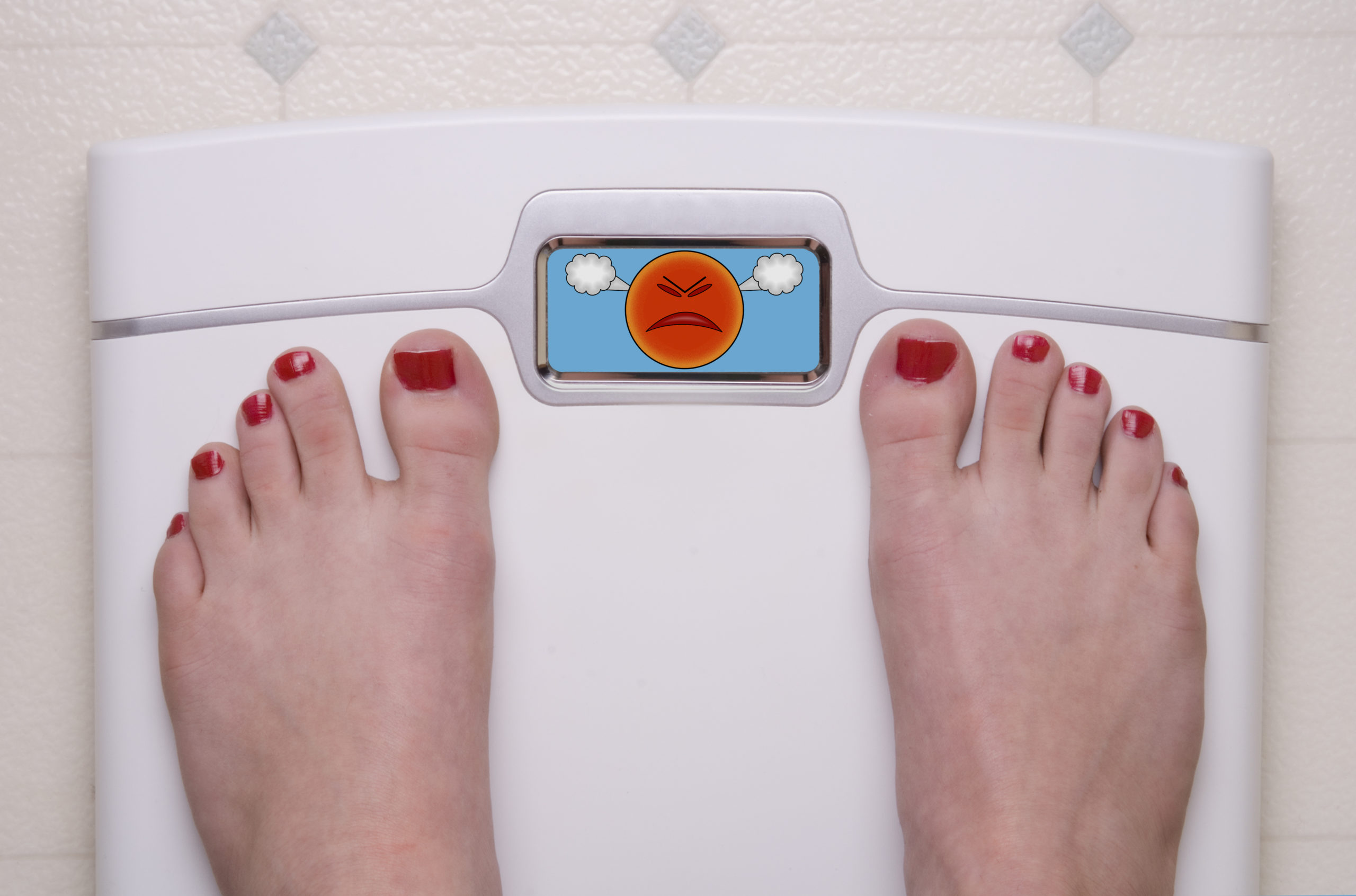When I began working with clients nearly four decades ago, almost everyone got great results. But occasionally, I would have that person who did everything correctly and yet could not lose the weight.
Once I got past the idea that they might be cheating, I realized that something must be going on with their metabolism. The term weight-loss resistance came out of that understanding, which I used to describe the struggle these folks were experiencing.
Sometimes, they would lose weight, but it would come back with a vengeance. For others, the scales refused to budge no matter how hard they worked. Regardless, these clients were understandably frustrated.
Numerous things contribute to weight-loss resistance, including pharmaceutical and over-the-counter medications, food allergies or sensitivities, sex-hormone imbalances, insulin resistance, thyroid or adrenal imbalances, and genetics.
Deep dive into 7 sneaky causes of weight-loss resistance here.
A few of these clients required a functional-medicine doctor to do some undercover sleuthing about what could be causing their weight-loss resistance.
For many others, however, the solution was simple and straightforward. I found that these three simple hacks became the big needle movers to break through the resistance, stop regain, and finally claim their healthy weight.
Hack #1: Address Food Intolerances
From the very beginning, I required clients to keep a food journal to pinpoint foods that could be hurting them. Many of them started their day with things like low-fat or fat-free yogurt (this was the ‘80s, after all), cereal with skim milk, or whole-wheat toast. Others would blow off breakfast for a latte with skim milk.
In almost every case, these clients thought their food choices were healthy. Many times, they weren’t.
Eventually, I started doing food-sensitivity testing, and I found the same foods were showing up again and again: gluten, dairy, eggs, corn, soy, and peanuts.
Many of these foods are sneaky. They show up in strange places, like gluten in mustard and soy in salad dressings. They can also manifest as sneaky sugars in, say, marinara sauce.
People develop food intolerance for several reasons. They may lack an enzyme to digest a certain food well (such as with lactose intolerance). Others have a sensitivity to a particular food, which creates low-grade symptoms including fatigue, digestive unrest, and joint pain.
Food intolerance produces a host of symptoms, but it also causes inflammation, a major cause of weight gain and weight-loss resistance.
When people pulled these foods for at least 21 days, amazing things happened. They looked and felt better, miserable symptoms improved or disappeared, and the scales finally started moving again. They were finally able to break through the weight-loss plateau that had kept them in bondage for years.
Beat Weight-Loss Resistance Strategy: Read The Virgin Diet and commit to Cycle 1 for at least 21 days. That means eliminating all of the seven foods that could be holding your weight and overall health hostage. Then, in Cycle 2, you’ll challenge four of those foods, one at a time, to learn which ones work and which don’t.
Hack #2: Manage Stress Levels
A little bit of stress can make you more resilient to whatever life throws at you. But when the stress response stays in overdrive, it can take its toll on you and make weight loss nearly impossible.
When you’re stressed out, you don’t make smart eating decisions. So you start your day with a low-fat blueberry muffin from your favorite bakery, which you know will assuage your stress. Unfortunately, you’ve created a downward spiral that cascades throughout the day.
Chronic stress carries physiological consequences, too. For one, stress makes your gut more permeable, producing an inflammatory response and creating problems like leaky gut.1
Other studies show that stress—in this case, work-related stress—can skyrocket your blood glucose levels.2 Eventually, this paves the way for insulin resistance and diabetes that (you guessed it) makes weight loss come to a grinding halt.
Beat Weight-Loss Resistance Strategy: You can’t avoid stress. However, you can do things to manage it, including deep breathing, meditation, yoga, or walking the dog. A few other ways to manage stress include:
- Listen to my podcast about managing stress well.
- Learn how tapping can help you manage stress.
- Sometimes we need a little extra support for achieving a balanced mood. Take Ten Stress Support helps you maintain a healthy response to stressful situations thanks to calming GABA and other mood-supportive nutrients.*
Hack #3: Get Great Sleep
Even when you’re eating well and doing the right kind of exercise, not getting great sleep creates a surefire path to weight-loss resistance.
You’re likely familiar with the aftermath of crappy sleep: you snap at your partner, little tasks become herculean efforts, and you’re more likely to nose-dive into those double-fudge cookies the receptionist brought in.
Poor sleep has physiological consequences, too. One study found that in otherwise-healthy folks, even one partial night of sleep deprivation contributes to insulin resistance, paving the path for obesity and diabetes.3
Another review found that compared with those who got solid sleep, folks who regularly slept less than seven hours per night:
- Were more likely to have higher average body mass indexes (BMIs, a marker of being overweight or obese)
- Were more likely to develop obesity
- Had increased levels of ghrelin, salt retention, and inflammatory markers
- Had decreased leptin and insulin sensitivity 4
Conversely, research shows that better sleep health can lead to greater weight and fat loss.5 Plus, you’re more likely to perform and feel your best after a great night’s sleep.
Beat Weight-Loss Resistance Strategy: Aim for seven to nine hours of solid, uninterrupted sleep every single night. A few ways to do that include:
- Find a winding-down sleep ritual that works for you. Mine includes chamomile tea, a good (but not great) novel, and an Epsom salts bath.
- Learn why sleep is the missing link for weight loss and much more in this podcast.
- Sleep Candy™ is a delicious, non-habit forming, great-tasting, lemon-flavored chewable that includes melatonin and other nutrients to help you safely fall and stay asleep.*
Bottom Line
Remember, your body is not a bank account. It’s a chemistry lab. And what are all the things that would impact that chemistry lab? Food intolerance, poor sleep, and chronic stress are three biggies that I often see lead to weight-loss resistance.
Break your fast every morning with a fast, filling, fat-burning loaded smoothie. Need some yummy ideas? I’ve got over 60 recipes in this guide. It’s FREE… and guaranteed to be a game-changer for fat loss and overall health. Claim yours here.
The views in this blog by JJ Virgin should never be used as a substitute for professional medical advice. Please work with a healthcare practitioner concerning any medical problem or concern. The information here is not intended to diagnose, treat, or prevent any disease or condition. Statements contained here have not been evaluated by the Food and Drug Administration
*These statements have not been evaluated by the Food and Drug Administration. This product is not intended to diagnose, treat, cure, or prevent any disease.
References:
- Madison A, Kiecolt-Glaser JK. Stress, depression, diet, and the gut microbiota: human-bacteria interactions at the core of psychoneuroimmunology and nutrition. Curr Opin Behav Sci. 2019 Aug;28:105-110. doi: 10.1016/j.cobeha.2019.01.011. Epub 2019 Mar 25. PMID: 32395568; PMCID: PMC7213601.
- Sancini A, Ricci S, Tomei F, Sacco C, Pacchiarotti A, Nardone N, Ricci P, Suppi A, De Cesare DP, Anzelmo V, Giubilati R, Pimpinella B, Rosati MV, Tomei G. Work related stress and blood glucose levels. Ann Ig. 2017 Mar-Apr;29(2):123-133. doi: 10.7416/ai.2017.2139. PMID: 28244581.
- Donga E, van Dijk M, van Dijk JG, Biermasz NR, Lammers GJ, van Kralingen KW, Corssmit EP, Romijn JA. A single night of partial sleep deprivation induces insulin resistance in multiple metabolic pathways in healthy subjects. J Clin Endocrinol Metab. 2010 Jun;95(6):2963-8. doi: 10.1210/jc.2009-2430. Epub 2010 Apr 6. PMID: 20371664.
- Cooper CB, Neufeld EV, Dolezal BA, Martin JL. Sleep deprivation and obesity in adults: a brief narrative review. BMJ Open Sport Exerc Med. 2018 Oct 4;4(1):e000392. doi: 10.1136/bmjsem-2018-000392. PMID: 30364557; PMCID: PMC6196958.
- Kline CE, Chasens ER, Bizhanova Z, Sereika SM, Buysse DJ, Imes CC, Kariuki JK, Mendez DD, Cajita MI, Rathbun SL, Burke LE. The association between sleep health and weight change during a 12-month behavioral weight loss intervention. Int J Obes (Lond). 2021 Mar;45(3):639-649. doi: 10.1038/s41366-020-00728-8. Epub 2021 Jan 7. PMID: 33414489; PMCID: PMC7914147.




